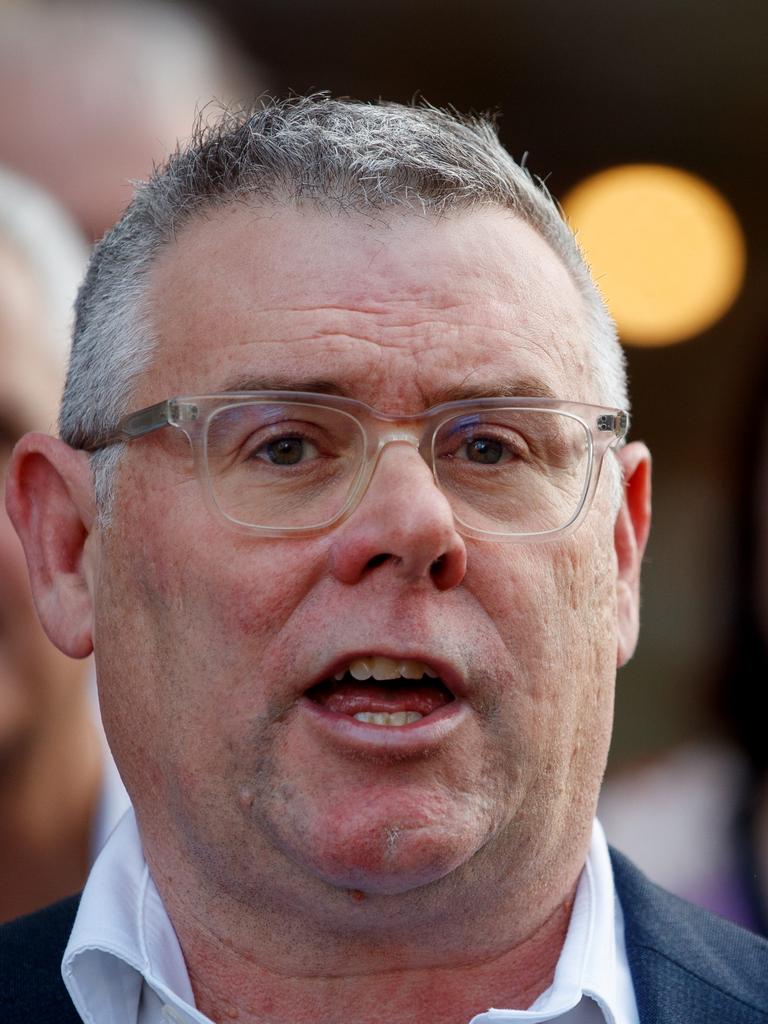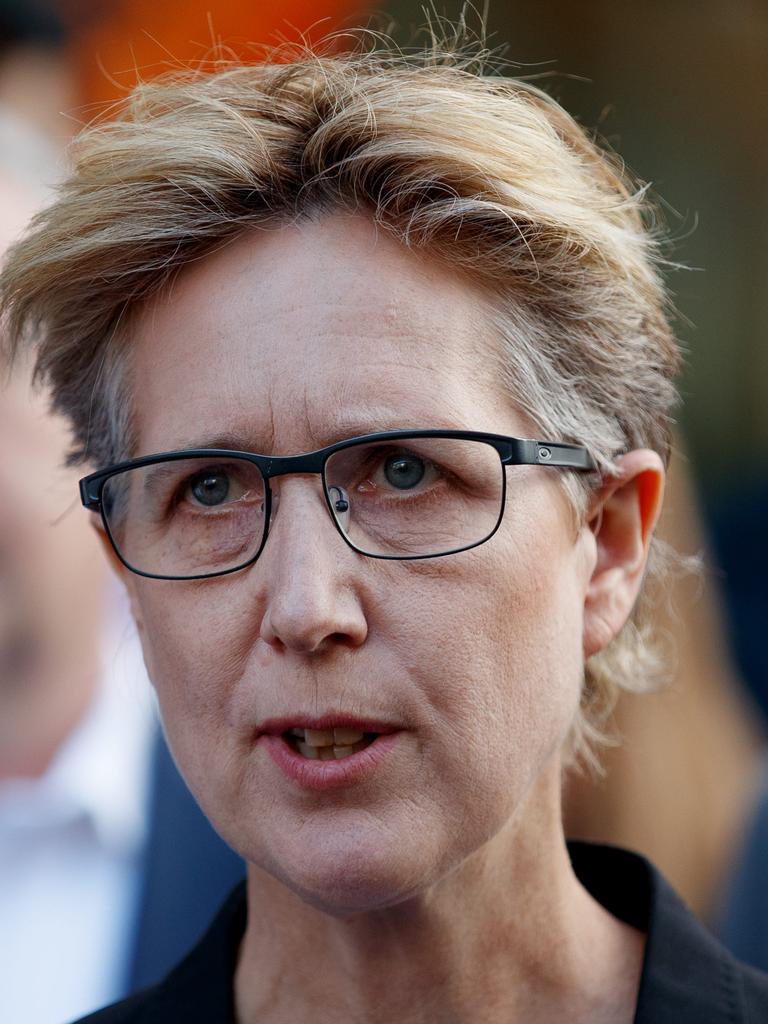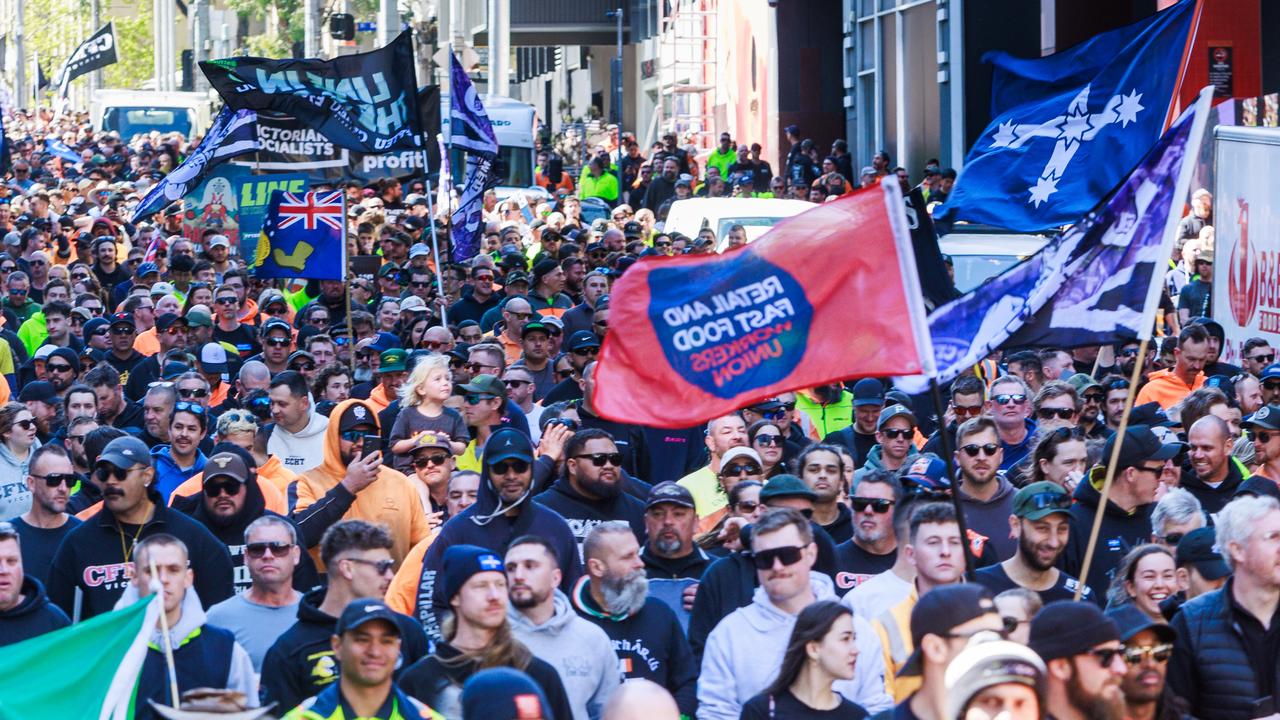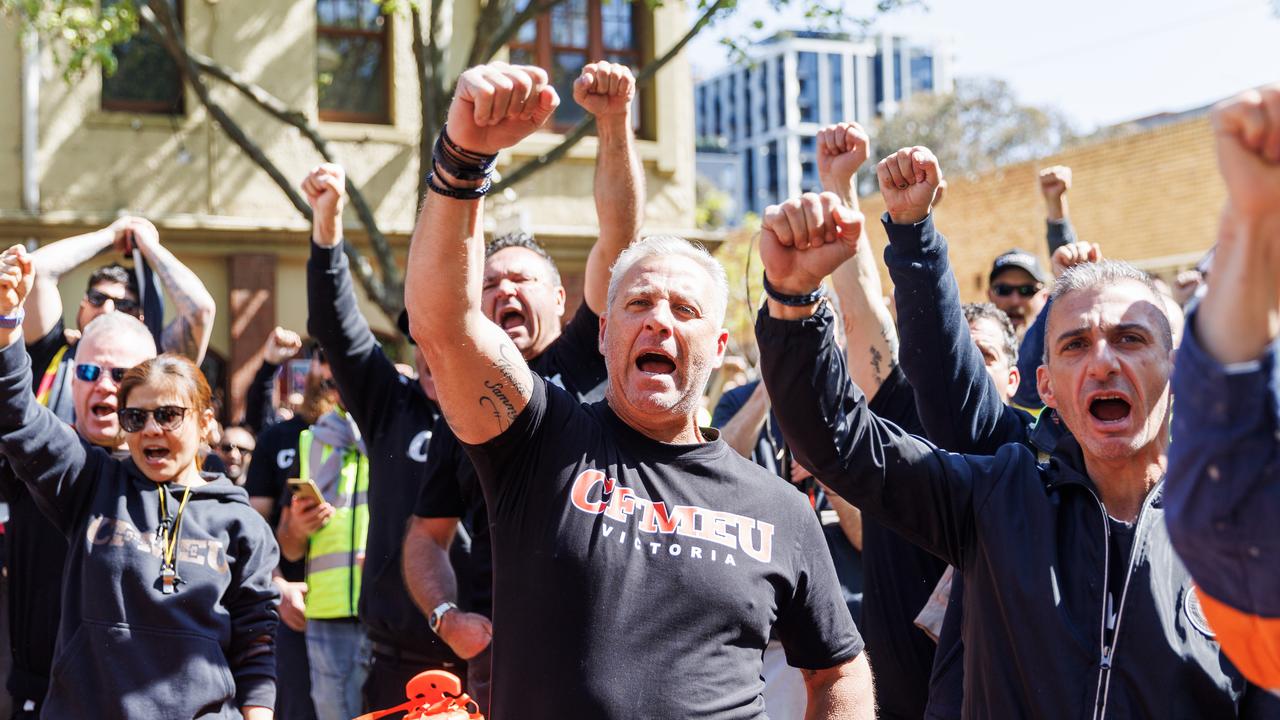Workplace Minister Murray Watt won’t discuss security after CFMEU administration fallout
The Workplace Minister has been asked about his personal security as unions remain angry at the Albanese government for its action against the CFMEU.
Workplace Affairs Minister Murray Watt has refused to comment on his personal security as
hostile trade unions declare war on the Albanese government as retribution for placing the scandal-plagued CFMEU into forced administration.
A group of unions is threatening to withdraw future political donations and support for Labor candidates ahead of the federal election.
The National Building Industry Group Unions (NBIGU) on Wednesday again condemned the Albanese government for denying the CFMEU “basic natural justice” following allegations of standover tactics, bullying and criminal infiltration of its construction sector.
On Wednesday, Senator Watt said the government would not be backing down, before 7.30 fill-in host David Speers asked him if he was “being threatened yourself in this whole process?”
“Look, I’d probably rather not talk about my personal security, David,” Senator Watt said. “There’s a number of us who are involved in this who have had levels of protection
at different periods of time.
“Unfortunately, there are other people outside government who haven’t had protection and are facing threats as well.
“And again, this just demonstrates the seriousness of the issues that we’re dealing with.”


One of those people is ACTU secretary Sally McManus who revealed earlier this week she had been forced to take measures for her safety, including staying in different places.
“I don’t go out much,” she told the ABC.
“I’ve had to change my routines. I live between different places. That’s life unfortunately at the moment because we’re standing up to those people – and there’s a price to pay for that.”
In a major fissure of Australia’s union movement, some of the unions at Wednesday’s meeting said they would consider withdrawing from the powerful peak union body ACTU, which has backed the administration.
The NBIGU flagging the creation of an “alternate democratic union body”.
Representing more than 250,000 workers across 23 separate unions, including the Electrical Trades Union, the bodies will gather at the national Trade Unions for Democracy Summit on December 9.
“Trial by parliament and media is not how we do things in Australia,” the group said in a statement.
“Against this backdrop of anti-union attitudes, this meeting resolves to collectively fight against these underhanded attacks and to work to protect our union democracy.”

Members will consider creating large-scale “political, industry and social campaigns” in support of “union democracy”, and consider proposals on “supporting union political candidates”.
In response, an ACTU spokesperson said the Australian union movement was “focused on preventing Peter Dutton from taking away the life-changing pay rises and new rights that working people have won”.

The statement coincided with Wednesday’s highly publicised National Construction Industry Forum (NCIF) convened by Senator Watt which was set to address challenges in the industry, including culture following the CFMEU fallout.
In a statement released after the meeting, worker bodies, business groups, and the government committed to further meetings over the coming months, in order to develop a Building and Construction Industry Blueprint.
The document will set out roles and responsibilities between state, territory and federal governments, and other worker groups and regulatory bodies.
Senator Watt, who is also the chair of the NCIF, spoke of the importance of “co-operation, not conflict”.
“Working together to address the persistent challenges facing this industry is key to ensuring it is an industry that works for everyone,” Senator Watt said.
“The blueprint will focus on creating lasting and tangible change within the industry.”




